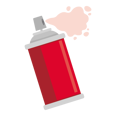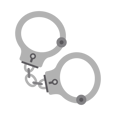Everyone has the right to enjoy their home and feel safe in their community and we are fully committed to resolving any problems that arise in your neighbourhood
We work with our residents and communities to help address any issues and their causes. Some behaviours may be neighbourly issues or anti-social behaviour (ASB) which causes, or is likely to cause, harassment, alarm or distress. We have a clear Good Neighbourhood Management Policy, ASB Policy, Hate Crime and Hate Incident Policy and Domestic Abuse Policy which we will follow.
When you report any issues to us, we will follow a three stage process to identify and help resolve the issue:
- Stage 1: Reporting. We receive your report of the issue.
- Stage 2: Investigation. We'll work with you to gather as much information and evidence as possible. Your Housing Officer will use their professional judgement identifying whether the issue is a case of ASB or whether it is a neighbourly issue.
- Stage 3: Resolution. We'll work with you to find a resolution for the issues you are facing, depending on what's appropriate.
To ensure your community remains a place where you want to live, we will also work proactively with our partners, including the local council, the police and other organisations, to prevent and tackle ASB. We have signed ASB Help's The PLEDGE which means we will work collaboratively together to determine the most appropriate solution for victims of ASB and ensure their voices are heard when a case review is required.
View our Good Neighbourhood Management and ASB Toolkit below by clicking on the issue you are experiencing to find out:
- whether we consider the issue to be good neighbourhood management or ASB
- what we can do
- what you can do
- what other agencies can do.
Day to day issues
We know that neighbours may sometimes disagree about things like:
- Parking
- Cooking smells
- Bins being left out
- Smoking or vaping in communal areas
- Children playing
- General living noises including hoovering or the washing machine.
These issues are classed as good neighbourhood management and not generally classed as anti-social behaviour unless they are part of more serious behaviours designed to cause harassment or intimidation.
Every person has different tolerances, expectations and perceptions when deciding if a behaviour is not appropriate. This means that some people will see certain behaviour as anti-social even if the behaviour may be considered reasonable.
Whilst some behaviour may impact a resident, there may not be intention by the other resident to offend or cause harm or upset, and therefore it may not be considered unreasonable.
What you can do
- Try to approach the person and explain the issue you have and how it is affecting you. Could you send them a note or a postcard?
- Contact us and discuss the concerns you have. You can provide evidence if you have any. We will be able to advise if we feel that this behaviour is unreasonable or not.
- With your permission, we can speak to your neighbour about the reports you have made.
- Participate in any joint conversation or mediation if offered.
- Help us by keeping us updated on what is happening and providing further incident reports if the behaviour doesn’t stop.
What we can do
- If you have tried talking to your neighbour but nothing has changed, we can talk to them on your behalf if you wish.
- We can send a letter detailing what has been reported to us and providing advice to prevent escalation and offering support and signposting where relevant.
- We might invite you and your neighbour to discuss the issue with us to find a resolution everyone is happy with. We may also consider using an independent mediator to try and find an acceptable resolution.
- If the issue is around parking and we have a parking enforcement contractor in place, we can ask them to encourage everyone to behave more considerately.
- If the issue is day to day noise because your neighbour does not have carpets in their home (for example, people walking around normally but on hard floors), we may be able to apply to a charity for support.
What other agencies can do
- For issues with parking or bins, contact your local council.
- The local highways team may also be able to support you with issues around parking.
Disagreements with your neighbour
Day to day issues can sometimes escalate into a more serious dispute between neighbours.
This can include things like
- People having parties at unsociable hours
- Neighbours doing DIY at unsociable hours
- Carrying out repairs to vehicles in parking areas on an ongoing basis
- Running a business from the home without permission that causes disruption to other residents
- Joyriding
- Speeding
- Dirty looks
- Screenshots of social media posts or interactions
- Shift work including night shifts
- Disagreements over boundaries.
These issues are classed as good neighbourhood management and not generally classed as anti-social behaviour unless they are part of more serious behaviours designed to cause harassment or intimidation.
What you can do
- Use the NoiseApp on Google Play or the App Store to record sounds and take videos of the issue.
- If you are unable to access the ASB App, download an ASB Diary Sheet
- If you feel threatened or unsafe at any time, or you believe a criminal offence has been committed, you should report this to the police immediately (in addition to logging it with us).
- Provide us with the references from any reports made to the police.
- For noise nuisance, you can contact the Environmental Health team at your local council. They have additional powers to take action where behaviour is serious enough.
- Give us your permission to speak to your neighbour about the reports you have made.
- Participate in any joint conversation or mediation if offered.
- Help us by keeping us updated on what is happening and providing further incident reports if the behaviour doesn’t stop.
What we can do
- We will be clear on whether we feel that this behaviour is unreasonable or not.
- If you have tried talking to your neighbour, but felt this hasn’t helped, or if you don’t feel comfortable doing this, we can talk to them on your behalf.
- We can send a letter detailing what has been reported to us and providing advice to prevent escalation and offering support and signposting where relevant.
- We might invite you and your neighbour to discuss the issue with us to find a resolution everyone is happy with.
- If the issue is around parking and we have a parking enforcement contractor in place, we can ask them to try and encourage everyone to behave more considerately.
- We can use Acceptable Behaviour Agreements/Good Neighbour Agreements to help people understand the standards of behaviour that are expected.
- Depending on the severity and the impact of the issues, we may be able to apply to the court for an injunction (an official order given by a court, usually to stop someone from doing something) or serve a Notice Seeking Possession on the responsible person if they are a tenant of PCH.
What other agencies can do
- If you are experiencing noise nuisance and you report this to your local authority Environmental Health team, they may be able to serve a Noise Abatement Notice. If that does not resolve the issue, then the local authority may be able to prosecute under the Environmental Protection Act.
- For criminal conduct around driving offences, the police may be able to arrest and charge perpetrators where they can be identified.
- Sometimes we may use an independent mediation service as people may be more willing to use an independent mediator.
Graffiti
Graffiti includes words or drawings written, painted, sprayed or scratched onto the surface of any property or structure that we own
Leaving graffiti on Plymouth Community Homes (PCH) property without permission is considered vandalism and further action may be taken against the offender. As well as potentially breaching their tenancy, they’re also making the area where you live look unsightly.
Graffiti is a form of anti-social behaviour as it is a criminal act and offenders can be prosecuted. It’s expensive and time-consuming to remove and sometimes is impossible to remove completely.
Sometimes graffiti happens in connection with other anti-social behaviour, which we will then deal with as part of a wider investigation.
What you can do
If the graffiti is in an area we own and manage, please let us know as soon as possible:
- Report this to us via our website. Please include as much information as possible such as the time, date and location of the graffiti and whether or not it includes offensive words or images.
- Take a photograph and/or video of the graffiti and upload it to the NoiseApp and create an incident report. Please include as much information as possible such as the time, date and location of the graffiti and whether it includes offensive words or images.
- Please tell us if you know who you believe is the responsible person for this graffiti even if you do not know if it is a PCH resident.
- Continue to keep us updated and provide further incident reports if the graffiti continues.
For any graffiti that you see in public spaces that are not owned by PCH, report it to the local authority.
If the area is managed by a managing agent, report any graffiti that you see to them.
Please also report any graffiti to the police, particularly if it includes offensive words or images as this can be classed as hate crime (see separate section on hate crime in this toolkit).
What we can do
- We will investigate graffiti where there is evidence that helps us identify who has been involved.
- If you are able to provide specific dates and times when graffiti occurred, we can check any CCTV to see if we have any evidence.
- Where graffiti occurs in areas that we own and manage, we will arrange to have it removed within 24 hours if it contains offensive words or images. All other graffiti will be removed in a timely manner.
- If we have evidence of who is writing the graffiti and they are a PCH resident, we will consider taking tenancy enforcement action against the perpetrator(s).
- If we have evidence of who is writing the graffiti and they are a NOT a PCH resident, we may still be able to take legal action against the perpetrator(s) depending on the circumstances.
- We can share information with the police and support criminal prosecutions for graffiti.
- We may be able to install CCTV to act as a deterrent.
- We may be able to apply anti-graffiti paint or other wall coverings to make it easier to remove graffiti or to make sure that the graffiti paint is not able to dry. We can assess whether any other preventative measures might help to deter future graffiti, such as installing security gates, doors or motion sensor-operated lighting.
What other agencies can do
- The local authority can remove graffiti in areas they are responsible for, such as playgrounds, pavements, public buildings etc.
- The police can prosecute perpetrators for criminal damage and other related offences.
- The police can also use their intelligence information to help identify graffiti 'tags' with known individuals so that we can take tenancy or other enforcement action.
Communal areas
Residents have the right to use and enjoy the communal areas in and around the homes they live in.
We want children in our communities to enjoy the area that they live in so we will encourage them to play responsibly.
For safety reasons we cannot allow trampolines and swimming or paddling pools on communal land, or the use of motorised scooters, e-bikes and mini motorbikes.
These issues are classed as good neighbourhood management and not generally classed as anti-social behaviour unless they are part of more serious behaviours.
What you can do
To keep these areas clean and safe you should:
- Make sure your children and guests are considerate of your neighbours and their property.
- Put your rubbish in the correct bins provided. Please break large card boxes and items down so bins do not get filled quickly.
- Make sure that you keep all hallways or stairways clear from rubbish, bikes or mobility scooters.
- Only smoke in permitted areas – inside your home and outside and away from the block - and dispose of cigarette ends safely.
- Not charge anything in any communal areas such as bikes and scooters.
- Park in the designated areas (if permitted to do so) avoiding obstructing driveways, access roads, or emergency exits.
- Park any vehicle you own considerately.
- Not use PCH land to store or maintain any vehicles.
- Keep to a safe speed when entering or leaving any car park area PCH own.
- Tidy away any used toys, slides or ride-ons, and do not leave them in the courtyard or communal area.
What we can do
- For boundary disputes we can provide maps of responsibility.
- For littering and bin queries we can signpost to the local authority for their advice and guidance.
- We will consider reporting it to the local safeguarding team if we feel there are concerns for a child’s safety.
Fly-tipping and bin stores
Fly-tipping is rubbish or items that are illegally left on land without the owner's permission
It can include large items like white goods, furniture, garden waste, commercial builder waste, litter and any refuse that householders can’t fit in the household waste bins.
Fly-tipping is a form of anti-social behaviour as it is a criminal offence. Those caught fly-tipping can be prosecuted and could face a fixed penalty notice of £150 to £400 for small-scale offences or up to £500 for larger incidents.
What you can do
- If you see fly-tipping in your neighbourhood on PCH land, you can report it to us.
- If the land is managed by another managing agent, their contact details should be on signage nearby. Please contact them to report the fly tipping.
- You can support us and the local authority to take enforcement action against anyone who fly tips on our land by providing a witness statement supporting legal action.
What we can do
- We can arrange to have any mess cleaned up as quickly as possible.
- Share information and evidence of fly tipping with the local council enforcement team in your local authority.
- If you are able to provide specific dates and times when fly tipping occurred, we can check any CCTV to see if we have anything caught on camera that we can use as evidence.
- If we have evidence of who is fly tipping or misusing the bin store, we can take tenancy enforcement action against the perpetrator(s).
- We may be able to install CCTV to deter further misbehaviour and support our evidence gathering.
What other agencies can do
- Local authorities can prosecute people for fly-tipping where they have enough evidence. Local authorities investigate fly-tipping as an environmental crime and the sanction could be up to a £500 fixed penalty notice.
- The police can prosecute people for fly-tipping where they have enough evidence.
- If we do not have responsibility for managing the land where you report fly-tipping or bin store misuse, we may need to ask the managing agent that is responsible to take action. If this is the case, we will let you know who to contact.
- If the fly tipping is on a public highway or any other public space that we do not own, then the local authority will be responsible for making arrangements to clear up any fly-tipping.
Hate crime
Hate crime is any incident of crime which is motivated by the hatred of someone because of ‘who’ the victim is or ‘what’ the victim appears to be.
Devon and Cornwall Police define hate crime as ‘any criminal offence which is perceived by the victim or any other person, to be motivated by hostility or prejudice based on a person's race or perceived race; religion or perceived religion; sexual orientation or perceived sexual orientation; disability or perceived disability and any crime motivated by hostility or prejudice against a person who is transgender or perceived to be transgender.’
You can find a list of types of hate crimes on the Devon and Cornwall Police website.
What you can do
To report any incidents of hate crime, report these directly to Devon and Cornwall Police.
- Always call 999 in an emergency or when a crime is taking place.
- To report non-urgent crime or anti-social behaviour or submit information linked with community tensions, call 101 or report via the Devon and Cornwall Police website.
If you would prefer to submit information to the police anonymously, call Crime Stoppers on 0800 555 111 or via their website.
What we can do
If you report hate crime to us, we will work as a third party and will report the incident to the police with your permission.
What other agencies can do
If you, or anyone you know, has been a victim of anti-social behaviour or crime and need some additional support, contact Victim Support.
Victim Support is an independent charity offering free and confidential advice and support to victims of crime and anti-social behaviour. They can be contacted by calling their 24/7 support line number on 0808 16 89 111, their local helpline number between 9am and 6pm on 0300 303 0554, or via Live Chat on their website.
Cannabis
The possession, manufacture and supply of cannabis is a crime under Section 8 of the misuse of drugs act 1971. This means that possession, manufacture and supply of cannabis in or around a PCH property is also a breach of the tenancy agreement as it is a class B illegal substance.
In reality most police forces do not have the time or resources to respond to cases of personal cannabis use.
Where there is no proceedable evidence of Cannabis being present we may not be able to meaningfully or conclusively tackle the issue until evidence is established.
In some cases, cannabis can be prescribed to treat certain medical conditions. Using Cannabidiol (CBD) is not illegal, and it gives off a similar smell to illegal cannabis. If you use CBD this way, please bear in mind that neighbours might be affected by the odour and take steps to minimize its effects. This could include exploring buying an air purifier for use in the home and where this is the case, we will ask for written evidence from a qualified NHS practitioner.
What you can do
- If you believe that someone is using, manufacturing or supplying illegal drugs you should report these concerns directly to the Police or Crimestoppers.
- Share the crime reference number with us.
What we can do
- In all reported cases we will speak to the alleged user and ask them to stop any usage, explain the impact and remind them of the law and their tenancy agreement.
- We will also share any reports we receive with the police.
- If illegal Cannabis is proven to be being used or kept in the property, we will take reasonable and proportionate legal or non-legal action to address this bearing in mind the risks, vulnerabilities, support needs of those involved, and the impact on reporting person/s and the community.
- We will signpost the cannabis user to support available and/or to their GP.
- Where it is not clear where the cannabis use is coming from, we will ask residents to continue to keep both us and the police informed of any concerns. Where there are multiple reports, we will visit with the police where possible.
What other agencies can do
- The police can investigate reports of criminal behaviour and cannabis use.
- Crimestoppers can share information on reports made to them anonymously with the police.
- The Public Protection team in the council can offer advice on environmental nuisance reports. A statutory nuisance can not be created if the issue is caused by 'reasonable use'. It is considered reasonable for someone to smoke within their own home and in their garden.
Animals and pets
We know that pets are an important part of many homes, but they can be a cause of nuisance and annoyance to others. When this happens, we are able to offer guidance and advice or take enforcement action where appropriate and proportionate.
If you are concerned about the welfare of an animal, please contact the RSPCA.
If you are experiencing nuisance being caused by a pet this can include:
- Excessive noise - barking in response to someone knocking at the door or at another dog are examples of what we would not consider to be ASB.
- Fouling.
- Smell associated with them impacting on other residents, for example in a block.
- Aggressive behaviour, including biting, and the pet acting as if they are out of control.
These issues are classed as good neighbourhood management and not generally classed as anti-social behaviour unless they are part of more serious behaviours designed to cause harassment or intimidation.
What you can do
- Talk to us when you are considering getting a pet.
- Seek our permission first before getting a pet.
- Sign a Responsible Pet Agreement when you are given permission for a pet.
- Adhere to the guidance we provide around pet ownership.
- Provide evidence of persistent and uncontrollable noise if you experience this so that we can investigated this as ASB. Use the Noise app to record sound, or photos/videos of the issues and create a log of the incidents occurring.
- Not have a banned breed in a PCH property unless you have exemption for a XL bully.
- Make your neighbour aware that their pet is making a noise disturbance as they may not know and explain the issue and how it is affecting you.
- Speak to your neighbour if their dog/cat mess is causing an issue. Cats have a 'right to roam' so if a cat defecates in any external space (communal or private) it is not considered ASB. We recommend seeking specialist advice on how to safely deter cats from entering your personal gardens.
- Keep dogs on leads in communal areas. Avoid toileting a dog in a communal area and pick up any mishaps.
- Participate in any mediation offered to resolve any neighbour pet issues.
- Report concerns about animal welfare and safety to the RSPCA as well as to your Housing Officer.
What we can do
- Offer advice and guidance when you are considering getting a pet.
- Direct you to the information we have on our website relating to pet ownership.
- If you have tried talking to your neighbour but that has not resolved the issue, we can speak to your neighbour on your behalf.
- Investigate any reports of pet nuisance you make.
- If you report that the pet noise is daily and for continuous periods last 30 mins or for shorter periods that are preventing you from sleeping during the night this may be ASB. We will issue you with a noise app and request that you submit recordings.
- Give advice and support to a pet owner who receives a complaint about their animal.
- We may invite you and your neighbour to try mediation to resolve the issues reported.
- If a customer has a pet without permission we will require them to sign a Responsible Pet Agreement or can ask them to remove the pet.
- If we believe a tenant is keeping a restricted breed at their home, as defined under the Dangerous Dogs Act, we will ask a tenant to produce the relevant paperwork to prove they are compliant with legal requirements for that breed.
- If we have enough evidence to identify a tenant whose pet is responsible for fouling in the communal areas, we may recharge the cost of the clearance, remove permission for the pet or use legal tools to address the issue.
What other agencies can do
- The police or the RSPCA can forcibly remove pets in some circumstances.
- The police and the RSPCA have the power to bring a criminal prosecution where they have enough evidence to demonstrate an offence has been committed.
- The police have the power to enforce compliance with the Dangerous Dogs Act, for example, registration and other requirements.
- The local authority’s Dog Wardens or Environmental Health team can investigate reports of excessive dog barking or noise nuisance relating to pets.
Noise nuisance
Residents must be considerate of their neighbours' need for peace and quiet. Excessive noise, particularly during night time hours, should be avoided. Musical instruments, televisions, and other electronic devices should be kept at reasonable volumes.
Noise can impact different people in different ways. What is quiet and reasonable to one person may be experienced as overwhelming by someone else.
We need to understand whether it is a one-off incident or pattern of behaviour, and this will be dependent on the information provided about the frequency of the incidents and whether it is noise nuisance.
Generally lifestyle noise such as babies crying, children playing, people talking and walking in their homes, closing doors and windows, vacuuming, using white goods and plumbing will generally not be considered to anti-social behaviour.
Everyone can expect some noise from the people who live around them and we encourage residents be tolerant of different lifestyles and cultures.
What you can do
- Not play loud music at a volume that causes a disturbance to others.
- Use subtitles or headphones where able.
- Use the NoiseApp which is available to download on Google Play or the App Store to record sounds and take videos of the issue.
- If you are unable to access the NoiseApp, download an ASB Diary Sheet.
- Provide us with the log numbers from any reports made to the police.
- For noise nuisance, make sure you contact the Environmental Health team at your local council. They have additional powers to take action where behaviour is serious enough.
- If the noise is happening in association with other types of ASB or criminal activity, you should report this to the police (as well as PCH and provide any police reference numbers).
What we can do
- We will be clear on whether we feel that this behaviour is unreasonable or not.
- If you have tried talking to your neighbour, but felt this hasn’t helped, or if you don’t feel comfortable doing this, we can talk to them on your behalf.
- We might invite you and your neighbour to discuss the issue with us to find a resolution everyone is happy with.
- Provide noise reduction guidance around the home to help reduce noise impacting on others.
- We can use Acceptable Behaviour Agreements/Good Neighbour Agreements to help people understand the standards of behaviour that are expected.
- We will liaise with other agencies such as the local authority and police if appropriate.
- Depending on the severity and the impact of the issues, we may be able to apply to the court for an injunction (a Court order prohibiting a person from taking a particular action or requiring them to take a particular action) or serve a Notice Seeking Possession on the responsible person if they are a tenant of PCH.
What other agencies can do
- If you are experiencing noise nuisance and you report this to your local authority Environmental Health team, they may be able to serve a Noise Abatement Notice. If that does not resolve the issue, then the local authority may be able to prosecute under the Environmental Protection Act.
Cuckooing
Cuckooing is when someone takes over the home of a vulnerable person to use it for criminal purposes, for example drug dealing, storing weapons, sex work or facilitating exploitation.
It often involves intimidation, physical and financial abuse, coercion, or manipulation of the resident. This term comes from the behaviour of cuckoo birds who take over the nest of other birds.
You might see:
- An increase of people coming and going from the property, perhaps at unusual times.
- The resident not being seen as much or appearing to be anxious or distracted in public. They may have unexplained injuries or changes in their emotional state.
- The resident may have a sudden increase in money or belongings.
- Anti-social behaviour from the address.
What you can do
- If this is happening to you, or you’re worried this might be happening to a neighbour, speak to us.
- Keep a record of any unusual visitors, noise or behaviour. Be mindful not to put yourself in any danger.
- Report any suspected criminal behaviour (for example taking or dealing drugs) to the police or anonymously to Crimestoppers.
What we can do
- Where there is ASB being caused or illegal activity confirmed we will follow our ASB process. This could include seeking an injunction to exclude visitors or possession proceedings.
- Refer you to advice agencies including ASB Help and Crime Stoppers.
- Work in partnership with the police, local authority and other agencies to investigate and act on concerns.
- Carry out welfare checks if there are safeguarding concerns and make referrals to social services safeguarding teams if necessary.
What other agencies can do
- Police can investigate and disrupt criminal networks, safeguard victims, and take enforcement action.
- Local Authorities can take enforcement action such as closing premises to prevent ongoing issues at the address.
- Safeguarding/social services can support vulnerable individuals and put protection plans in place.
- Support services (e.g. Harbour, community mental health teams etc) can provide help and support with substance misuse, mental health and leaving an exploitative situation.
Harassment and stalking
Harassment and stalking involve repeated, unwanted attention or behaviour that causes fear, alarm or distress. This can include following someone, sending unwanted messages, loitering nearby someone’s home or place of work or using social media to monitor or contact someone.
What you can do
- Talk to us if you are worried about the way someone is behaving towards you.
- Harassment and stalking are criminal offenses, and it is important that everything is reported to the police.
- If the person that is harassing you is a PCH resident, please report it to us too.
- Contact the National Stalking Helpline on 0808 802 0300.
- Keep a record of what has happened including times, dates and any witnesses - and please don’t delete any evidence you have such as texts and emails etc.
- Block and report any online harassment or abuse.
What we can do
- Take reports seriously and consider installing security measures to support you to feel safer in your home (such as fire-retardant letterboxes, extra lighting etc).
- We can signpost you to support agencies and liaise with the Police.
- We can speak to the alleged perpetrator if they are a tenant or live in one of our properties if this is what you wish. We wouldn’t want to do anything that put your further at risk.
- We can use legal tools available to us where proportionate and appropriate. This includes applying for injunctions to prevent someone from entering one of our blocks or seeking eviction if someone is found guilty of an offence and have breached their tenancy agreement.
- We can support you to explore moving if this is something you are considering.
What other agencies can do
- The police can investigate reports, issue warnings and/or apply for court orders and pursue prosecution where laws are broken.
- The council can support you if you are not safe to stay in your home.
- Victim Support and local and national domestic abuse services can provide emotional support, safety planning and practical assistance with regards to legal remedies and housing options.
Untidy gardens
We understand that some residents have really high standards and expectations of what a tidy garden looks like, and we will take a realistic approach and be honest about what is and isn't possible. For example, toys in a garden would not be an issue.
We will support residents to address any concerns we may have relating to their garden and be clear with them about what we consider to be acceptable and what they need to do to address any issues present.
We will be clear that where there is communal land any paths are shared paths and therefore need to remain clear and accessible to all residents that have a right of access.
Whilst we do regular estate walkabouts and find it easy to notice the fronts of gardens the rear gardens are often the inaccessible, some may even be behind locked gates, so residents who overlook gardens are well placed to tell us about issues we may not know about.
We will support some overgrowth if this is a solution to maintaining a garden and supports wildlife.
What you can do
- Approach your neighbour and have a conversation about their garden and offer to help.
- Offer to lend them any tools you have if you are willing to.
- Offer to work with them, for example if you’re removing some bulky waste see if your neighbour has anything to get rid of.
- Tell us if you notice a garden that you feel is a concern or is unkempt and requires attention.
- Advise us if a resident begins extensive garden alterations that we may be unaware of.
- Have some patience. Sometimes an item that is “dumped outside” may already be awaiting collection though this may not be instant.
- Understand your own rights and obligations such as having the right to trim back any branches that hang over the boundary or contribute to maintaining any shared pathways.
What we can do
- We will follow our untidy garden and garden breach procedure when we receive a report or identify a garden that does not meet the tenancy obligations.
- We will be clear on what improvements are required and set reasonable timescales.
- Refer to support available such as the time bank and social care .
- Regularly inspect the garden to monitor the condition.
- We will investigate options to improve conditions in the garden if there is scope to do this.
- Consider legal options available to address any issues should the resident not make satisfactory progress themselves
What other agencies can do
- Adult social care can assess and offer support if there is a care need.
- The council offer a bulky waste collection service which is often free or subsidise if you are in receipt of qualifying benefits.
- Certain charities may be able to provide funding.
- We can only speak to our tenants about their gardens as this is a tenancy agreement obligation, if the issue relates to a private property the council have certain powers and can advise you further.
Drugs
If you suspect that a neighbour is buying, selling and/or using illegal substances you may notice
- An increase in visitors to the property, particularly at night, at unsociable hours or for very short durations.
- An increase in cars, motorbikes and bicycles parked outside the property.
- Communal doors being propped open and/or repeatedly damaged.
- Unknown visitors frequently try to gain entry into a block of flats
- Curtains are constantly drawn.
- An increase in rubbish and debris immediately outside the property. This may include drug paraphernalia.
What you can do
- You can contact us to discuss any concerns you may have.
- You can gather evidence if safe to do so and save any footage you have so this can be shared with the police.
- Report your concerns to the police or Crimestoppers.
What we can do
- We will investigate any reports you make and ensure that we do not share who made the report to protect your identity.
- We will speak to the Police and other agencies who may have a role to play in tackling this issue so we can take a multi-agency approach to seek resolution.
- Be clear and consistent that drug use and possession is a breach of the tenancy agreement and that we will not tolerate this and the impact it has on innocent people.
- Offer signposting and support to any of our residents who disclose addiction issues.
What other agencies can do
- The police will investigate any reports made to them and take action if there is proven illegal activity.
- The local council will investigate any reports made to them and they can use their powers to address reports of criminal behaviour linked to drugs, for example property closure orders to bring immediate respite where there is proven antisocial behaviour and criminality affecting an innocent community.
Criminal behaviour
This includes:
- Anti-social behaviour
- Domestic abuse
- Harassment and stalking
- Hate crime
- Using, storing and selling drugs
- Criminal damage
- Modern slavery
- Fly-tipping.
If you notice something that concerns, you and that you think may be illegal its important you report this if you are safe and able to do so.
The reporting person or witness is best placed to provide direct evidence to the police. If we share the information, it would be classed as hearsay evidence and your word would mean more than ours.
What you can do
- Call 999 if there is an immediate danger to yours or someone else's life, you are a victim of crime or you witness a crime occurring or a violent act is in progress.
- Call 101 if you want to report something that has happened to you or someone else. Alternatively, you can complete the online reporting form, visit a police station or contact Crimestoppers to share your concerns anonymously.
- You can contact us to discuss any concerns you may have.
- You can evidence gather if safe to do so and save any footage you have so this can be shared with the police.
- Report any fly tipping concerns to the local council.
- Share any safeguarding concerns you have with Adult or Children Social Care.
What we can do
- We can advise if we feel that your concerns would be classed as criminal behaviour.
- We can signpost you to the Police if we think that there is a criminal concern.
- Take appropriate and proportionate tenancy action if the person responsible for the criminal behaviour is a tenant of PCH.
- Ensure that we do not share who has made the report/s to us to protect your identity unless there is immediate risk of harm.
- Share concerns with the police and any partner agencies if relevant.
What other agencies can do
- The police will investigate any reports made to them.
- Your local council will investigate any reports made to them.















